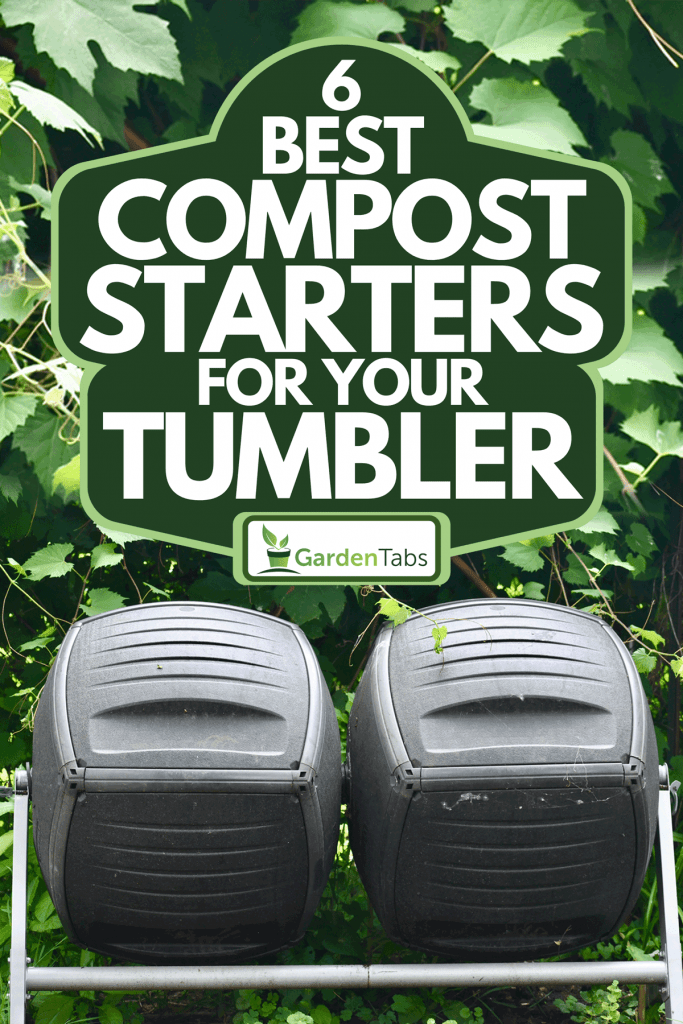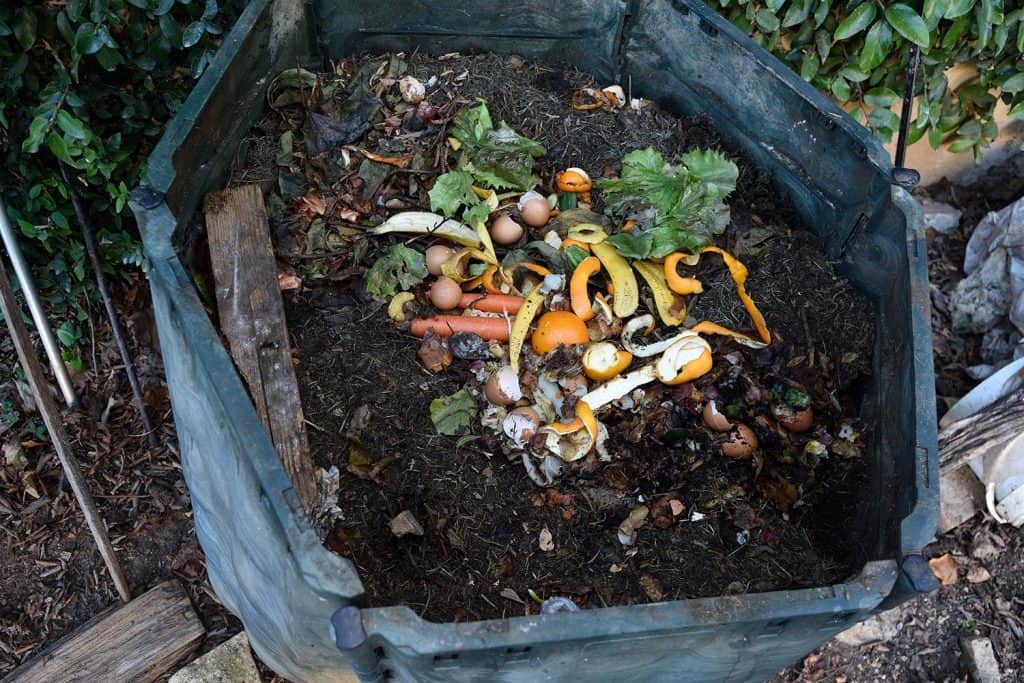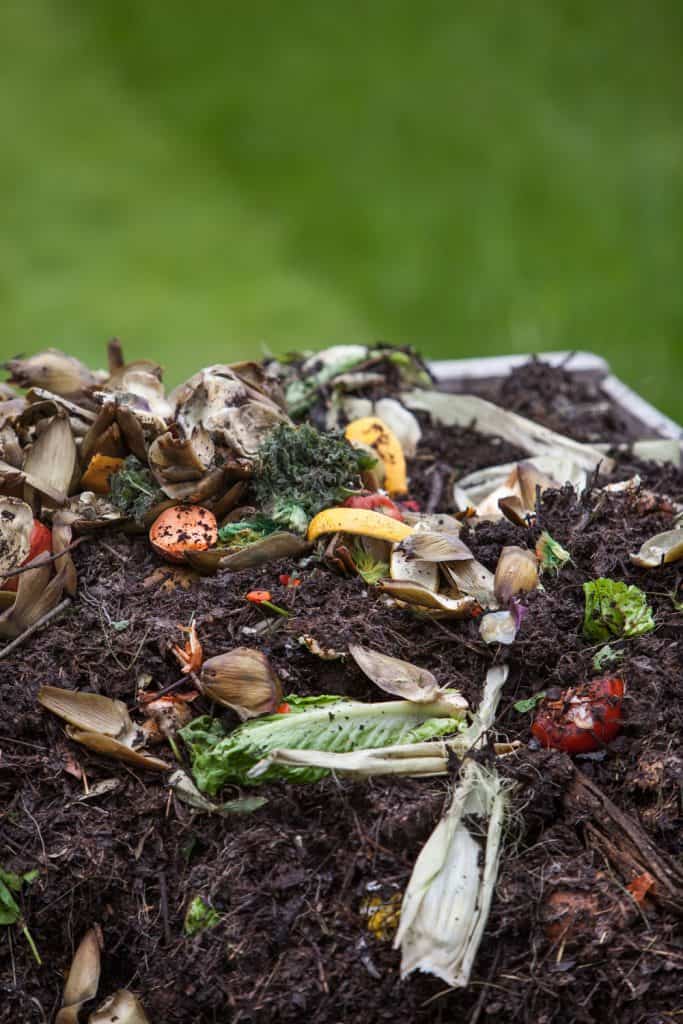Starting compost from scratch is an exciting activity that responsibly uses food scraps and avoids the landfill. However, you may be interested in knowing more about compost starters. We researched some of the best compost starters to add to your tumbler and boost your green thumb skills. Learn what makes an ideal compost starter and signs of a healthy compost that is highly beneficial to plants.
When creating compost, you will need to add a balanced mix of green and brown materials. However, give your compost the best start by using a compost starter. Check out our suggested list of starters to add to your tumbler:
- Jobe's Organics Compost Starter
- Biomaster Compost It Compost Accelerator
- Dr. Earth Compost Starter
- Espoma Organic Traditions Compost Starter
- GreenPig Compost Accelerator
- Gardener's Supply Company Super Hot Compost Starter
Jump into composting like a pro with a compost starter and maintaining your compost as it undergoes its process of transformation. Keep reading to learn how!

Choose Your Compost Starter
Getting microbes to actively break down the mix of materials you use to build compost takes some time. However, adding a compost starter can make your composting activity quite lively without relying on worms. Activating your compost pile, whether it is inside a tumbler, outdoors, or an indoor bin will help create compost faster.
When seeking out a quality compost starter, check the amount and balance of nitrogen, carbon, and hungry microbes. Many compost starters are either liquid or dry and contain fungi, are pH balanced, and include helpful bacteria to help break down materials.
There are a few key moments when you may want to add a compost starter, activator, or accelerator to your tumbler. Remember, you can control how many green or brown items you throw in, adding either nitrogen or carbon. You can also adjust the amount of oxygen and water levels.

However, a compost starter can prove useful for the following:
- Your compost lacks sufficient carbon or nitrogen materials.
- You desire more microbiological activity and need hungry microbes to help break down compost faster.
- The compost is on the drier side and could use more moisture.
- You want to encourage a healthier pH balance to support fungi and microbes to break down the compost.
It's perfectly fine to take the long road with your compost and forego using a starter. However, starters make composting a breeze, so why not use one?
1. Jobe's Organics Compost Starter
Hands down, Jobe's Organics Compost Starter is one of the highest-rated, certified organic starters on the market. The composition of this starter contains a proprietary microorganism additive that quickly breaks down materials in a compost pile.
Additionally, this compost starter helps boost soil quality, resists drought, disease, and insects. In as little as 2 to 3 weeks, gardeners should see fast results and achieve wonderful, nutritious humus. Use 2 cups of starter for every cubic yard of compost material.
Check out this top rated compost starter on Amazon.
2. Biomaster Compost It Compost Accelerator
If you want to give your compost a boost, check out this compost accelerator with over 60 ingredients included. Apply this safe, chemical-free starter to your tumbler or bin to create rich humus within as little a 4 weeks. Reduce off-putting odors in kitchen compost bins and use it on compost piles with worms.
Check out this natural compost starter on Amazon.
3. Dr. Earth Compost Starter
Enjoy a unique composting experience with this organic and natural starter from Dr. Earth. You get a 3 lb bag of compost accelerator that is a blend of soil microbes, alfalfa meal, and seaweed extract to create a rich humus. It is marketed as safe for humans and pets and is useful for all forms of composting.
Check out this natural blend compost starter on Amazon.
4. Espoma Organic Traditions Compost Starter
Espoma is a brand that prides itself on family ownership, organic fertilizers, and quality. Sprinkling a bit of Espoma Organic Compost Starter can help accelerate the composting process, achieving humus within 2 to 3 months. The company offers a bag of starter that is 4 lbs and 1-cup of starter is sufficient for 16 square feet of compost.
5. GreenPig Compost Accelerator
Get decomposition of green and brown materials moving along with these soluble packets filled with helpful bacteria. Dissolve a packet in 1 to 2 gallons of water and apply it to your compost pile to get started. You can achieve rich humus in as little as 30 days; just apply a packet weekly for optimal results.
Check out this fast-acting compost starter on Amazon.
6. Gardener's Supply Company Super Hot Compost Starter
If you have up to 8 bushels worth of compost to get started, why not add this resealable bag of compost starter to the mix? It is user-friendly, requiring the addition of water and giving it a turn or two to get started. It weighs 7 lbs and provides plenty of nitrogen and microorganisms to heat up your compost and get it breaking down in a jiff.
Check out this handy bag of compost starter on Amazon.
Is A Compost Starter Necessary?
![Shredded vegetable and other elements inside a small compost bin, How To Compost In Florida [A Complete Guide]](https://gardentabs.com/wp-content/uploads/2021/08/Shredded-vegetable-and-other-elements-inside-a-small-compost-bin.jpg)
Compost starter isn't absolutely necessary, but it is nice to have around if you are having trouble. It is possible to create a good quality compost if you can achieve a balanced mix of nitrogen, carbon, and moisture. However, your compost will take some time to break down and attract microbes, fungi, and strike a balanced pH.
You can get your compost off to a good start by adding some starter which helps ensure a better mix of green and brown ingredients. Plus, many starters are formulated to support faster decomposition of your food scraps, plant waste, and help you develop nutritious humus for plants in less time than going it alone.
What Does Compost Starter Include?
Commercial compost starters available to gardeners often include a healthy, balanced mix of nitrogen, carbon, and microorganisms, including fungi. Also, compost starters may be in liquid or dried form to best mix with your compost pile.
However, you can create a compost starter using a ratio of 4 carbon-based brown materials to every 1 nitrogen-based green material. Adding a starter with sufficient levels of fungi, bacteria, and organic components helps to speed up the composting process.
Remember, even with the addition of a compost starter it is vital to aerate the compost, keep it moist, and adjust the pH level to encourage healthy microbial activity.
How Much Compost Starter To Use?

You will want to read the manufacturer's suggestions on how much starter to add to your compost bin, tumbler, or pile for best results. However, some brands call for 1 to 2 cups of starter for every 16 square feet of layered compost materials.
Keep in mind, some compost starters are liquid, while others may be similar to potting soil or a pellet that needs to be dissolved. Follow the provided instructions and use enough starter to get the job done. Piling on too much starter, without consideration to aeration, water levels, and the mix of green and brown materials, won't help much.
What Not To Put In A Compost Tumbler?
If you want to reduce maggots or noxious odors emanating from your compost, there are some things you should avoid adding to it in the first place. Here is a handy list of items not to add to your compost tumbler because it will thwart quality results.
- Meat or fish products
- Pet or human waste
- Dairy products
- Cooking oil
- Bread
- Sawdust
- Chemically treated labels, papers, etc.
Certain items will create foul odors, attract more flies, maggots, and create unwanted bacteria in your pile. Stick to adding helpful items to your compost, such as dry grass clippings, vegetable scraps, shredded paper, teabags, and dead leaves instead. Worms, fungi, and helpful microbes will assist with speeding up the composting process.
In Closing
We hope that you discovered some helpful information regarding quality compost starters. Yes, you can tough things out, creating a great compost from scratch using a mix of green and brown materials. However, give your compost the best start with a top-rated compost starter with a balanced composition of materials.
Don't forget to regularly turn your compost for oxygen, ensure it is moist enough but not overly so, and enjoy the process. Even if you start your compost using a starter, it is up to you to maintain and feed your compost until it is ready for use on gardens and houseplants.
Before you go, don't miss out on the following helpful articles:





